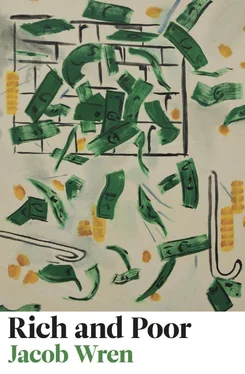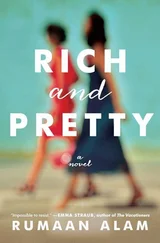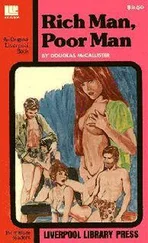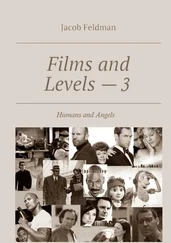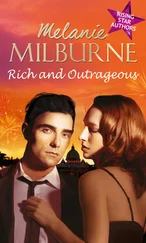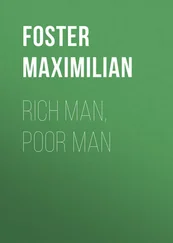The day I thought I saw him in the distance was a strange one. I was without my driver, walking through the streets. I suspect I wanted to be alone that day. So often there are people swarming around me: picking me up at the airport, driving me places, ushering me into meetings. What I notice is when you start to be haunted by feelings of failure your desire to be alone increases. I was only home for a day before my next trip. Tomorrow I would, once again, be ushered around by strangers and, before I was swept back up into my ongoing survey of the world, I wanted at least a few hours to reflect. I still believe, if you were a camera in the corner of the room, watching me, following me through the streets, everything would appear to be in order. The cracks in the façade were not yet showing; the oncoming rush of possible difficulties remained imperceptible, too subtle to be noticed or suspected by anyone but me. It still seemed so possible that my life would continue like this without anything ever quite going completely wrong. I would travel for a few years, get the fullest possible overview of our organization, then return home to run it, shore up my remaining power, perhaps end up even more in charge than I had been in the past. This was possible, even likely. But unfortunately it was not the only possibility.
I was wandering alone, without a driver or a bodyguard, and perhaps seeing Emmett in the distance had made me nervous. I wondered if Emmett could still harm me and, as I did so, also had a slight pang of friendship-residue, wondering if he was all right, how he was doing. Since there were no handlers shuttling me around, since I had managed to escape for a few hours, I thought it might be a good moment to visit a prostitute. At my age I was beginning to consider that prostitutes were the best solution. A trophy wife, a woman young enough for me to completely desire her, seemed in bad taste, though so many other CEOs of my generation apparently had no problem with it. And maybe I would try that again some day, but not today. Today a prostitute seemed like the best option, a reminder that a pure economic transaction was the most clean, the most precise, method for fulfilling desires and needs.
I know business, I know money, and therefore I know that they are always slightly troubled by the realities of sexual prostitution, since sex is something that can never be stripped clean. Economics, like money itself, wants to keep pushing everything towards abstraction. The more we’re able to think of things as being only things, the more malleable they become, the more we can manipulate and play them. It might be true that sex and desire are also abstract — the person I am fucking is never only that person but always, also, my fantasy of them — but it seems that fucking will always be fucking. There is always some physical aspect to it that doesn’t want to be reduced. You can’t help but sense your body right there on the line. One million apples or one million typewriters easily land on a spreadsheet, but one million fucks feel out of place.
Does this have something to do with freedom? With consumer options? I cannot go out and get one million apples for free. But right now, all over the world, one million fucks are actually taking place without anyone paying a cent. And though you can always find a few men, perhaps also a few women, who would prefer to pay for it (I, today, might be one of these men), for most of those million they would absolutely prefer not to think of their fucking as a transaction. This doesn’t mean they particularly mind thinking of some aspect of it as exchange, the man paying for dinner being the most obvious and clichéd example, but that slight buffer of dinner between fucking and economics appears to be a relative necessity for most.
2.
During that time I would frequently go to the library. It was an escape from the field, a place to think about what we were doing, envision strategy, read books that question our current approach and give pertinent examples from history. So many things had been tried before, succeeded or failed, or succeeded for a while only to fail much later and more painfully. Then there was the day I realized there was a piano in the library, an upright, pushed into a corner, covered with a black sheet. For several weeks I only noticed the piano, but then one day I went to the desk and asked about it, asked if it was in tune. They believed it was, someone came to tune it several times each year. And I don’t know why — I was so sure I had left all of that completely behind and never wanted to look back — but I asked if I could play it when the library was empty, which seemed to be most of the time. They said I could, it would be nice to have music at times. So on certain days, after an hour or two spent reading, I would walk over to the piano, neatly fold up the black cloth, sit down, and trying not to think too much about what it meant or why, play for a while. It seemed to be the only thing that would calm me, where for a moment I might forget the violence, the constant and immanent threat.
I don’t know when exactly I realized I was no longer playing Mozart or Bach, that I was now playing something else, almost remembered songs I must have first heard in childhood. But these melodies I found myself playing, sketching them out as I went, half-remembered and likely incorrect — from a time before we lost everything and a time before I knew that life was going to be so hard — gave me a sort of difficult-to-pin-down confidence. They suggested another world, a world that existed before all this shit we currently found ourselves in, a world that might still be purring gracefully along long after all of this has completely burned to the ground. That there is not only one time, but different times. There is the time of the field, rushing to get on the buses so you can harvest a few meagre dollars of produce to be shipped to neon-lit supermarkets, where those who purchase it will not think for a moment of the labour that brought each item into their thoughtlessly greedy hands. And then there is the time of these scant melodies, which were here long before any of us were born and will likely continue to transform, continue to be sung and hummed and whistled long after all of us, all of this, is gone. This other time didn’t care if we lived or died, doesn’t care if it’s me remembering each note and stringing them together, or someone else in some other way, sense or age. If something disappears there is always the possibility it might return. These songs have existed in different forms, made slow or fast, with different words or slight variations on the same words, and if they’ve existed for so long there is no reason they wouldn’t continue to exist. I didn’t even know which folk songs they were. Or when I first or last heard them. Or if I would ever hear them sung properly again. All of these thoughts and emotions ran through me with greater and greater force as I sat at the piano and quietly played.
One afternoon I was playing, lost in the music. I worried each time I played that I became lost in the music a little bit more, that maybe someday I wouldn’t want to come back, that this refuge from the tension and potential violence I would soon have to return to — a violence I’d done everything to incite — would once again become a refuge I wanted to make my permanent home. Why leave something comforting to return to the nerve-wrecking slam of the world? On this particular afternoon I was so lost I don’t know how long it had been before I noticed someone listening and watching me. She wasn’t threatening in any way, just an older woman in a library who saw there was music and decided to take it in. But when I turned to face her I had a thought, or feeling, I don’t think I ever had before. I looked at her, she smiled, and my first impression was that maybe she was about the same age my mother would have been if my mother was still alive. This startled me. Coming here, being surrounded with people who looked more like me, speaking a language from my childhood, playing these melodies from another lifetime and another world — clearly all of this had unlocked something that was now taking on a life of its own, out of my control. I looked at her and started to cry. I was staring straight at her, my face streaming with tears, but she met my eyes calmly, completely unfazed. I think she said something like: you play beautifully. I hope I said thank you as I continued to cry and, since I was now crying too hard to speak, turned back to the piano, sliding back into the old songs. I hoped she would be gone by the time I finished, I played and played for such a long time, yet when I was done she was still there. She again said that I played beautifully and asked if she could take me to lunch.
Читать дальше
